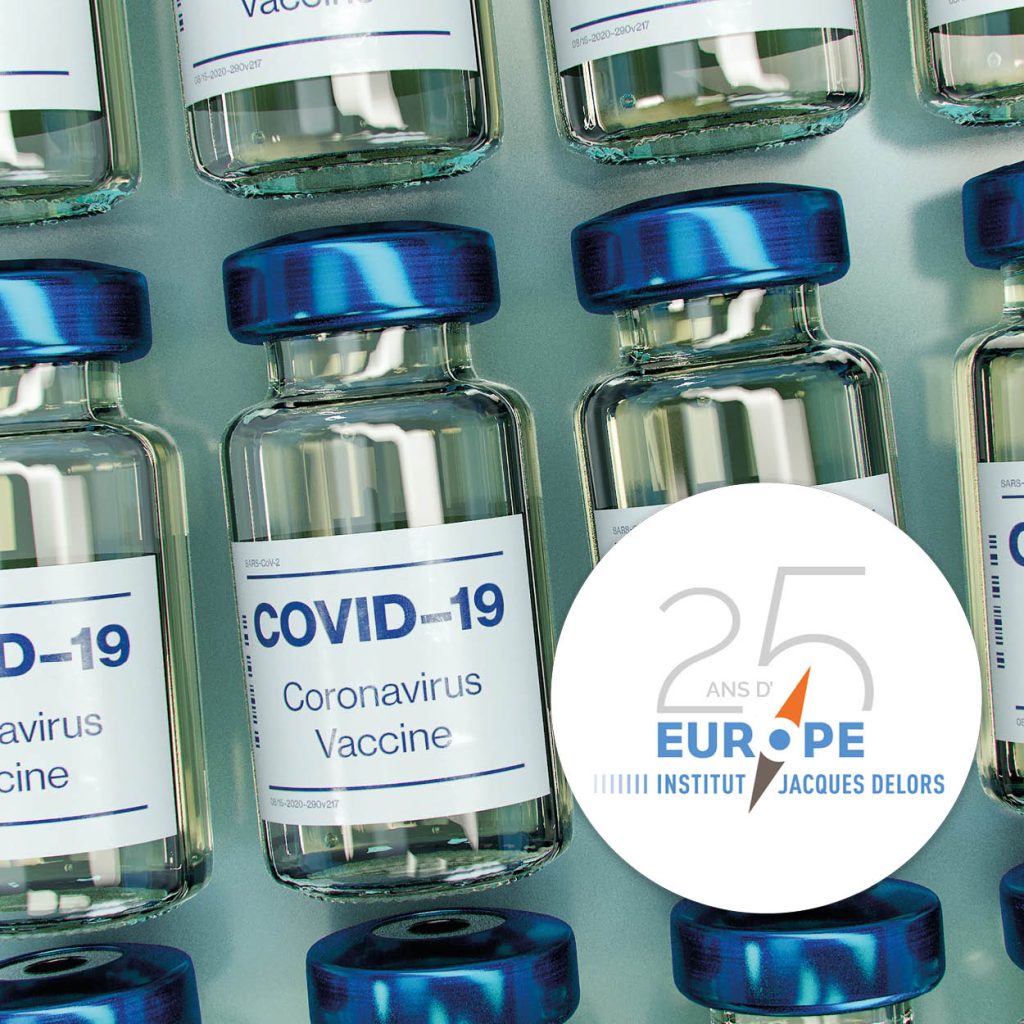A European vaccine passport? A healthy debate

As the entire world continues to fight the COVID-19 pandemic, the Greek Prime Minister, Kyriakos Mitsotakis, suggested the creation of a vaccine passport in Europe, which would take the form of a standardised certificate that allows a citizen to confirm that they are immunised. Welcomed by several countries, the proposal also underwent strong criticism.
Following a video conference, heads of State and government agreed on 21 January that an agreement was possible regarding a common certificate of vaccination for medical purposes. Since then, guidelines have been adopted by the Member States.
Yet the question of the rights related to this certificate, in particular to make travel abroad safer and easier, appears to be premature for many reasons of a medical, social, ethical and legal nature. Despite this, it is important to foster dialogue immediately so that the challenges and difficulties may be correctly identified, and to define the conditions under which Europe could one day issue a genuine “vaccine pass”.
A debate revived by the COVID-19 pandemic
In recent years, Europeans had started to consider the option of creating a “common vaccination card or passport” for EU citizens, taking into account any differences in national vaccination schedules, that would be compatible with the electronic immunisation information systems and would be recognised for use across borders.
Discussions resumed and were stepped up with the coronavirus pandemic: the concept of a vaccination certificate was brought up early on in discussions on contact tracing and vaccination strategies. Then, in its communication dated 2 December 2020 on the responses to the COVID-19 epidemic, the Commission reminded that vaccination registries, paper based or in the form of Immunization Information Systems (IIS), are in place in most countries. According to the Commission, they will be “key” to ensure that COVID-19 vaccination data can be processed, both at personal and population levels. When travelling, individuals could for example provide proof that they have been vaccinated and would not be subject to testing or to self-isolation.
EU-27 agreement on “proof of vaccination”
An important step forward has been made since then. Following the impetus given by the European Council meetings in December 2020 and January 2021, national health experts who came together under the “eHealth Network” adopted guidelines concerning “proof of vaccination for medical purposes” on 27 January. Compatible with existing national solutions and mutually recognised within the EU, this electronic certificate allows the holder to provide proof, in any Member State, that they have been vaccinated, in strict compliance with personal data protection.
The guidelines aim to support the interoperability of vaccination certificates. These certificates will have to provide a unique identifier (which could work like the IBAN for bank information) and a minimum dataset. In particular, the document will have to state the name of the person, the disease concerned, the type of vaccine injected, the authority responsible for its marketing authorisation and the date, location and country of vaccination.
Normalised and accessible electronically in every country, the certificate will also be available as a paper document. These guidelines are not binding, yet Member States wishing to roll out vaccination certificates will be strongly encouraged to comply with them if they want to ensure that they are interoperable across the EU. According to the Commission, eleven member states already issue such certificates, and at least seven are about to do so.
A primarily medical objective
Under this agreement, and in compliance with what the Commission specified a few days earlier, this European vaccination certificate will have a medical purpose:
- to ensure enhanced monitoring of individual cases: has the person been vaccinated and on which date, did they receive one or two doses, do they have any side effects and if so which ones;
- to have, as part of a health policy, a general monitoring instrument and measure the extent to which national vaccination campaigns are correctly rolled out;
- to ensure mutual recognition within the EU, which would give any EU citizen with this certificate the assurance that all Member States will consider them as having been vaccinated;
- to monitor medical data to prevent a person being vaccinated several times.
While they concern vaccinations against COVID-19 primarily, the guidelines which have just been adopted could be used in future as a basis for other vaccinations or disease prevention measures. The EU also wishes to cooperate with the WHO (World Health Organization) to create an electronic vaccination certificate, in compliance with national legislations.
The step from a vaccination certificate to a vaccine passport
Another much more sensitive and controversial question concerns the rights that may be attached to this vaccination certificate, to facilitate travel within the EU or to lift certain restrictions. Some countries are very much in favour of this, such as Greece and Spain, which view it as a means of relaunching their tourism industries, which have been hard hit by the pandemic. Others, such as France and the Netherlands, consider the debate to be premature. Erring on the side of caution, the Commission wants a clear attitude from Member States before addressing this issue. “The use to be made of this certificate must be very carefully considered”, warned President Ursula von der Leyen.
Those who oppose such a vaccine passport are concerned in particular that it would breach the principle of equality between citizens and therefore be in breach of the treaty on the European Union: on one side, there would be those who will be vaccinated, thus enabling them to travel freely abroad or have access to certain activities, while on the other side there would be those who have not been vaccinated, either by choice or for a variety of reasons.
Questions are primarily on medical grounds. To date, nobody knows if the vaccine inhibits the transmission of the virus or whether despite immunisation the person remains contagious. Similar uncertainty exists concerning the duration of the vaccine’s efficacy and its capacity to deal with the different mutations of the virus (variants). The WHO’s COVID-19 Emergency Committee recommended on 15 January that countries “do not introduce requirements of proof of vaccination or immunity for international travel as a condition of entry”, “as there are still critical unknowns regarding the efficacy of vaccination in reducing transmission and limited availability of vaccines”. There is no comparison here with the international vaccination certificate, the small yellow card that certifies that the holder has been vaccinated against yellow fever and which is required by some countries, particularly in Africa, upon arrival.
On an international level, there is also debate between the tourism industry, the World Tourism Organization (UNWTO) and the WHO. The Global Tourism Crisis Committee recently stressed the importance of stepping up cooperation regarding vaccination certificates, while the World Committee on Tourism Ethics is working on a possible Recommendation that would subject the vaccine passport to a series of conditions.
The creation of a vaccine passport also raises legal, ethical and societal questions. The percentage of vaccinated people is still very low, including among those who are in favour of obtaining the vaccine but are not in the priority groups. The European Commission has set ambitious vaccination objectives: at least 80% of the over 80s and 80% of healthcare professionals by the end of March, 70% of adults by the end of the summer. Yet delays observed in the production and delivery of vaccines further complicate the situation.
How, then, can the rights of the large majority, which have not yet been vaccinated, be respected under the “passport”? Which alternatives could be proposed to those who have legitimate reasons for not being vaccinated? What could the response be to those who see the passport as a veiled means of making vaccination mandatory? A passport that would have to be shown several times a week or month, including to private operators who do not necessary intend to carry out this oversight role.
Fostering economic recovery and freedom of movement
The issue will require “constant democratic vigilance”, according to Belgian philosopher Michel Dupuis. He believes that with such a passport, citizens will gain in terms of shared spaces and social interactions what they will lose in confidentiality and individual freedom. “A clear and sound legal basis” will be necessary, according to Belgian lawyer Gilles Genicot, who considers the passport as an infringement of individual freedom, privacy and physical integrity, in addition to medical confidentiality.
Most probably, at the very least, we would have to wait for the vaccine to be available to all or at least for a considerable percentage of the population to be vaccinated to consider the creation of a vaccine “pass”, which would grant holders a number of rights. The types of places and activities which would be open to vaccinated people must be defined very carefully: travel, dining out, cinemas, museums and other activities which are partially or totally closed today. Many elements will have to be decided: the content, duration and legal guarantees of such a pass.
A hybrid solution discussed by Charles Michel, President of the European Council, could entail for example boosting air travel this summer, when a majority of citizens will have been vaccinated, while requiring others to take a PCR test before travelling. The European Commissioner for Justice and Consumer Affairs, Didier Reynders believes that we must make life easier for vaccinated citizens when there will be a sufficient number of them, while enabling others to continue to travel by using testing and self-isolation. Everyone has the same priority: to prevent any discrimination between citizens.
Conclusion
The challenge over the coming months will be to ascertain whether we could go further than a simple certificate for medical reasons and could resume activities that are currently suspended – and which will remain so for as long as the pandemic will last -by reserving access solely to vaccinated populations, provided that there is evidence that they are no longer contagious.
To achieve this, a very large percentage of those who wish to be vaccinated must have been able to do so. In the absence of any obligations, those who refuse to be vaccinated may have to accept the consequences and not prevent others from returning to a (more) normal life. Unless, in order to uphold the principle of fairness, the COVID-19 vaccine should be made mandatory? This controversial question deserves at the very least to be raised. Under these circumstances, responsibility is both individual and collective.




